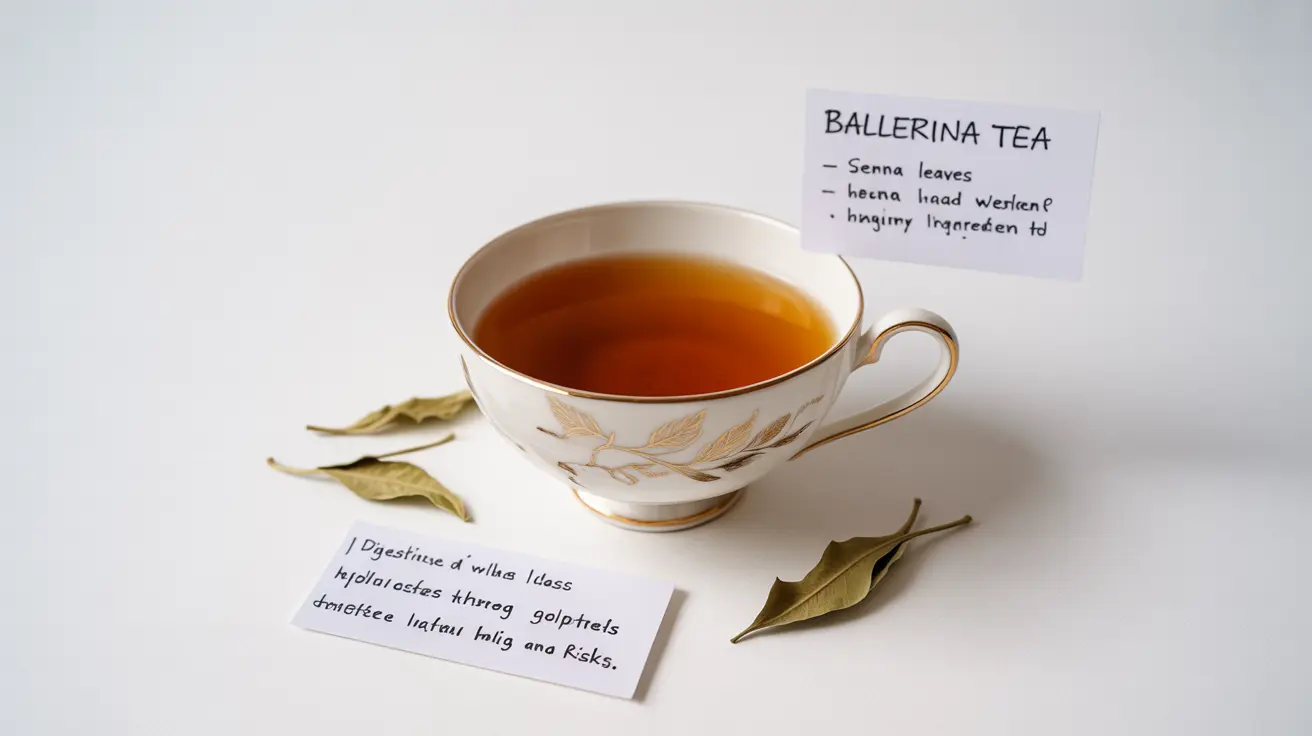Ballerina tea has gained popularity as a weight loss and digestive aid supplement, but it's essential to understand both its potential benefits and risks before incorporating it into your wellness routine. This herbal tea blend, typically containing senna leaves and other natural ingredients, has been marketed as a solution for various health concerns.
In this comprehensive guide, we'll explore the effects of ballerina tea, its safety considerations, and what scientific evidence says about its use for weight management and digestive health.
Understanding Ballerina Tea Composition
Ballerina tea typically consists of senna leaves as its primary active ingredient, often combined with other herbs like malva leaves or Chinese mallow. Senna is a natural laxative that has been used in traditional medicine for centuries to treat constipation and promote bowel movements.
How Ballerina Tea Works
The main active compounds in ballerina tea are sennosides, which stimulate the intestinal muscles and increase water content in the bowels. This action helps promote bowel movements and can temporarily reduce water weight, leading some people to perceive it as a weight loss aid.
Potential Benefits of Ballerina Tea
Digestive Support
The primary legitimate use of ballerina tea is for occasional constipation relief. When used properly and in moderation, it can help regulate bowel movements and provide temporary digestive support.
Temporary Water Weight Management
While ballerina tea may appear to aid in weight loss, it's important to understand that any weight reduction is primarily due to water loss and increased bowel movements, not actual fat loss.
Important Safety Considerations
Risk of Dependence
Regular use of ballerina tea can lead to laxative dependence, where the body becomes less capable of natural bowel movements without stimulation. This is why it's crucial to limit use and avoid long-term consumption.
Medical Considerations
People with certain medical conditions, including inflammatory bowel disease, kidney problems, or heart conditions, should avoid using ballerina tea due to its potential effects on fluid and electrolyte balance.
Proper Usage Guidelines
If you choose to use ballerina tea, follow these important guidelines:
- Start with a low dose to test your tolerance
- Don't use for more than 1-2 weeks at a time
- Drink plenty of water to prevent dehydration
- Stop use if you experience cramping or discomfort
- Consult healthcare provider before use if you have existing health conditions
Frequently Asked Questions
What are the benefits and risks of drinking ballerina tea for weight loss?
While ballerina tea may cause temporary weight loss through water loss and increased bowel movements, it's not a sustainable weight loss solution. Risks include dehydration, electrolyte imbalances, and laxative dependence. Any weight loss is typically temporary and returns once regular eating and drinking patterns resume.
How does ballerina tea work to relieve constipation and aid digestion?
Ballerina tea contains sennosides from senna leaves, which stimulate intestinal contractions and increase water content in the bowels. This natural laxative effect helps promote bowel movements and temporary relief from constipation.
Can ballerina tea cause side effects like dehydration or electrolyte imbalance?
Yes, ballerina tea can cause dehydration and electrolyte imbalances, especially if used frequently or in large amounts. Other potential side effects include cramping, diarrhea, and abdominal discomfort. It's crucial to stay well-hydrated when using this tea.
Is it safe to consume ballerina tea during pregnancy or while breastfeeding?
No, ballerina tea is not recommended during pregnancy or while breastfeeding. The senna content can stimulate uterine contractions and may be harmful to the developing baby. It can also pass through breast milk and affect nursing infants.
How long can I safely use ballerina tea without developing dependence or health issues?
Ballerina tea should not be used for more than 1-2 weeks at a time to avoid developing laxative dependence. Long-term use can lead to chronic constipation, weakened bowel function, and other health complications. If you have ongoing digestive issues, consult a healthcare provider for appropriate treatment options.




